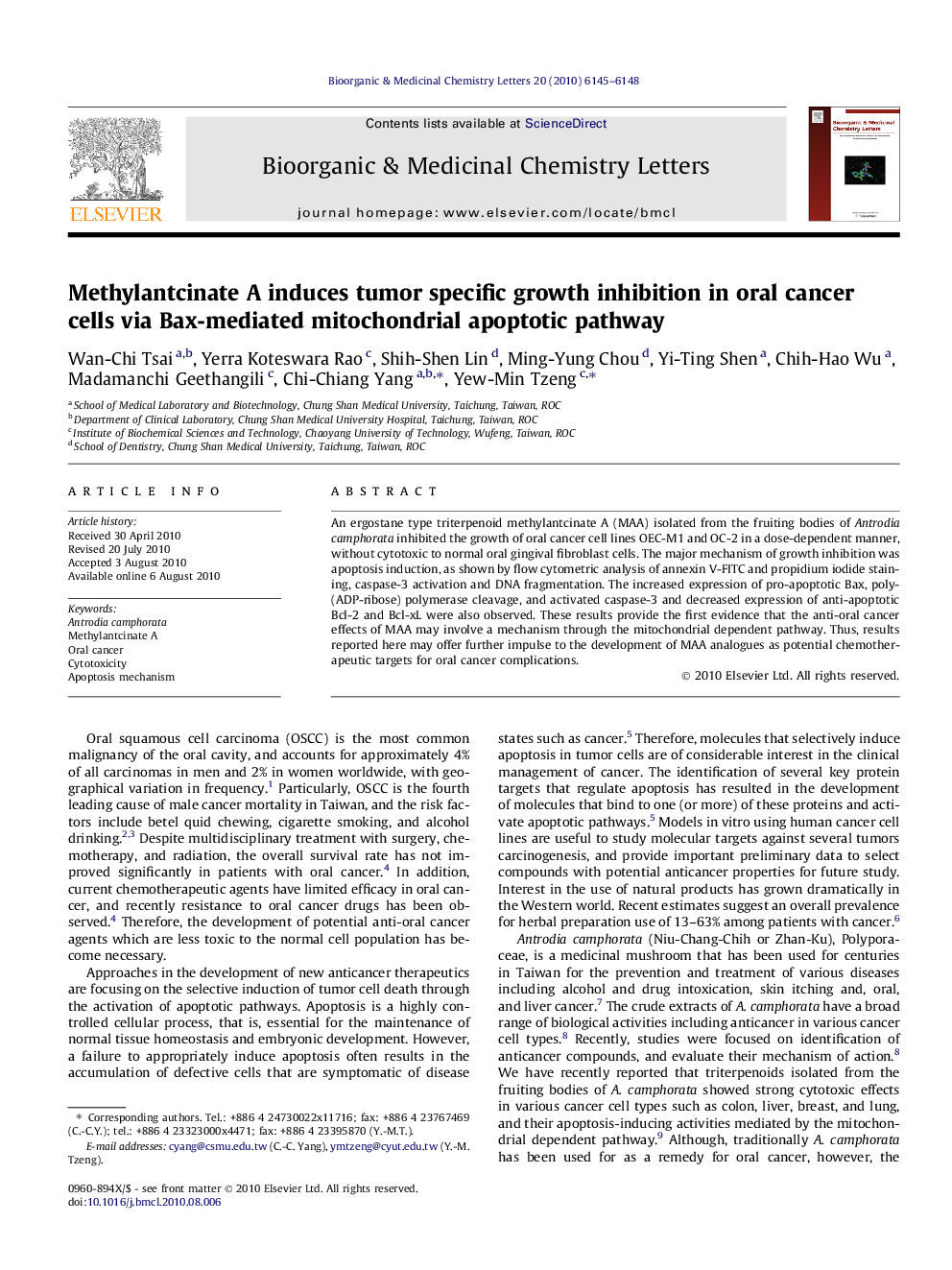| Article ID | Journal | Published Year | Pages | File Type |
|---|---|---|---|---|
| 1362775 | Bioorganic & Medicinal Chemistry Letters | 2010 | 4 Pages |
An ergostane type triterpenoid methylantcinate A (MAA) isolated from the fruiting bodies of Antrodia camphorata inhibited the growth of oral cancer cell lines OEC-M1 and OC-2 in a dose-dependent manner, without cytotoxic to normal oral gingival fibroblast cells. The major mechanism of growth inhibition was apoptosis induction, as shown by flow cytometric analysis of annexin V-FITC and propidium iodide staining, caspase-3 activation and DNA fragmentation. The increased expression of pro-apoptotic Bax, poly-(ADP-ribose) polymerase cleavage, and activated caspase-3 and decreased expression of anti-apoptotic Bcl-2 and Bcl-xL were also observed. These results provide the first evidence that the anti-oral cancer effects of MAA may involve a mechanism through the mitochondrial dependent pathway. Thus, results reported here may offer further impulse to the development of MAA analogues as potential chemotherapeutic targets for oral cancer complications.
Graphical abstractMethylantcinate A (MAA) isolated from Antrodia camphorata inhibited the growth of oral cancer cell lines OEC-M1 and OC-2 in a dose-dependent manner, without cytotoxic to normal oral gingival fibroblast cells. The mechanism of growth inhibition was apoptosis induction, as shown by flow cytometric analysis of annexin V-FITC and propidium iodide staining, caspase-3 activation and DNA fragmentation. The elevation of the expressions of apoptosis regulatory proteins, Bax, poly-(ADP-ribose) polymerase cleavage, and activated caspase-3 were also observed.Figure optionsDownload full-size imageDownload as PowerPoint slide
